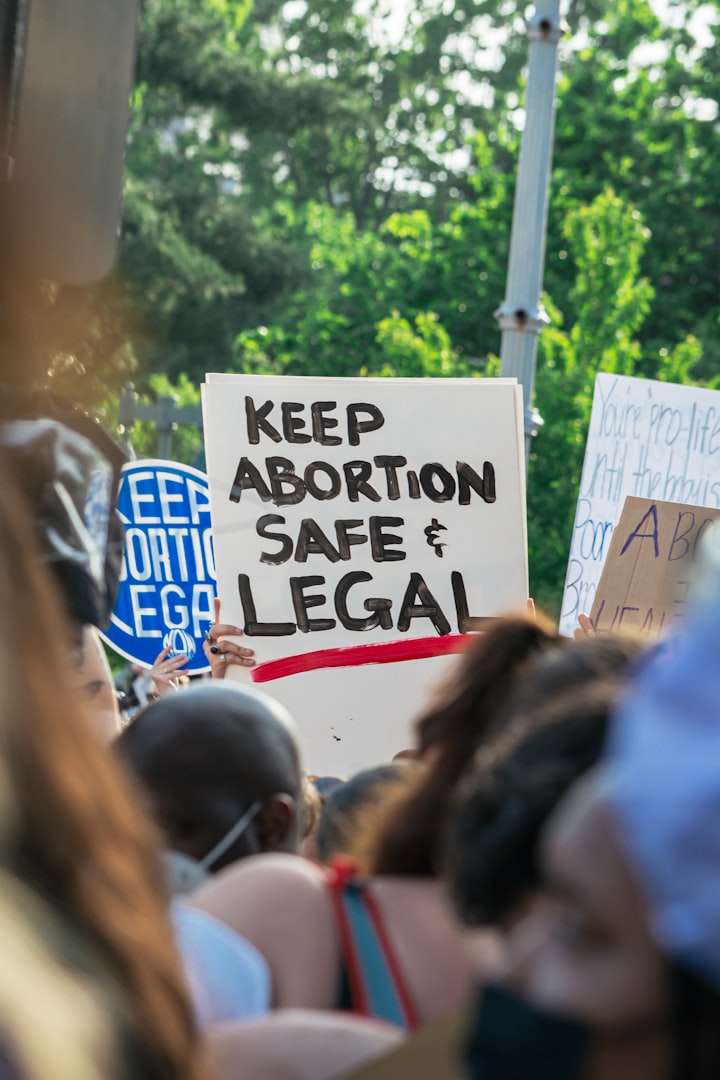Personal Choice and Autonomy
The emotional debate revolves around a woman's right to make decisions about her own body and reproductive choices. Advocates argue that restricting abortion infringes upon women's autonomy and personal freedom, while opponents often emphasize the rights and moral standing of the unborn fetus.

The topic of personal choice and autonomy in the context of abortion is one of the most emotional and contentious aspects of the abortion debate. It centers around a woman's right to make decisions about her own body and reproductive choices without interference from external forces, including the government, religious institutions, or even family and partners.
Emotional aspects of this topic include:
Empowerment: Advocates for personal choice and autonomy emphasize the importance of empowering women to control their own bodies and lives. They argue that restricting access to safe and legal abortion infringes upon women's rights and denies them the ability to make decisions that best suit their individual circumstances.
Freedom of Expression: The emotional aspect of this topic also touches on the freedom to express one's beliefs and values. Advocates often argue that imposing anti-abortion laws or beliefs infringes upon the personal beliefs of individuals who may hold different views.
Respect for Women's Agency: Emotions may arise from the perception that denying women access to abortion diminishes their autonomy and agency. Advocates emphasize the importance of respecting women's ability to make responsible and informed choices about their own lives.
Privacy and Personal Space: Emotions can also be triggered by the notion of protecting personal privacy and creating boundaries between individuals and the state or other institutions. Supporters argue that reproductive decisions are private matters that should not be subject to external control.
Protection from Coercion: Emotional discussions also involve concerns about protecting women from coercion, whether it be from partners, family members, or societal pressures. The idea is to safeguard women's ability to make genuine choices without feeling forced or manipulated.
Experiences of Empowerment and Liberation: Some women who have had access to safe and legal abortion share emotionally charged stories of how the ability to choose empowered them to take control of their lives, pursue education and career opportunities, and build a better future.
Challenges and Stigma: On the other hand, individuals who oppose abortion rights often express their emotions through concerns about the sanctity of life and the potential negative consequences of what they perceive as a devaluation of life.
Moral Complexity: Emotions also emerge from the moral complexity of the issue. People may wrestle with the balance between personal autonomy and the ethical implications surrounding the beginning of life.
It's crucial to approach discussions about personal choice and autonomy with sensitivity, as they often involve deeply held beliefs and experiences. Listening to and understanding the perspectives of others can foster more constructive dialogues on this emotionally charged topic.At its core, empowerment is about promoting autonomy and agency. It recognizes the inherent worth and capabilities of individuals and seeks to dismantle barriers that prevent them from realizing their full potential. Empowerment fosters a sense of ownership and accountability, encouraging people to take charge of their circumstances and actively participate in shaping their futures.
In various contexts, empowerment can take different forms. In education, it involves creating inclusive and student-centered learning environments where learners are actively engaged in their educational journeys. Teachers facilitate learning experiences that empower students to explore their interests, pursue their passions, and take ownership of their learning process.
In the workplace, empowerment means fostering a culture that values employee input, encourages innovation, and recognizes individual contributions. Empowered employees feel trusted and valued, leading to increased job satisfaction and productivity.
Empowerment is also essential in social and political contexts. Marginalized communities and individuals often face systemic barriers that limit their access to resources and opportunities. Empowerment initiatives aim to redress these inequalities, empowering marginalized groups to advocate for their rights, influence decision-making processes, and effect positive change in their communities.
The concept of empowerment is closely linked to the principles of social justice and human rights. It aligns with the belief that every individual deserves equal opportunities to live a fulfilling life and participate fully in society. By empowering individuals and groups, we move toward a more equitable and inclusive world.
In conclusion, empowerment is a transformative process that aims to uplift individuals and communities by providing them with the tools and support needed to thrive. It is a catalyst for positive change, fostering self-confidence, and promoting active participation in personal, social, and professional spheres. Embracing empowerment leads to a more just and harmonious society where everyone has the opportunity to reach their full potential.





Comments
There are no comments for this story
Be the first to respond and start the conversation.